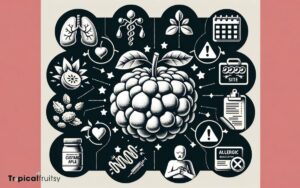Do Custard Apple Cause Cold: Debunking the Myth!
In an age where leeches were trusted more than doctors, I might’ve believed that eating a custard apple could give me a cold.
But now, as I sift through old wives’ tales and modern science, I’m intrigued by the connection between what we eat and how we feel.
Custard apples, with their creamy texture and sweet taste, are often suspected of causing colds, but is there any truth to this?
As someone who values understanding, I’ve looked into the nutritional content of these fruits and how they impact our immune system.
My goal is to dispel myths with facts and provide clarity on whether indulging in a custard apple might leave you sniffling. It’s important to separate anecdotal beliefs from scientific evidence, and that’s what I’m set to explore.
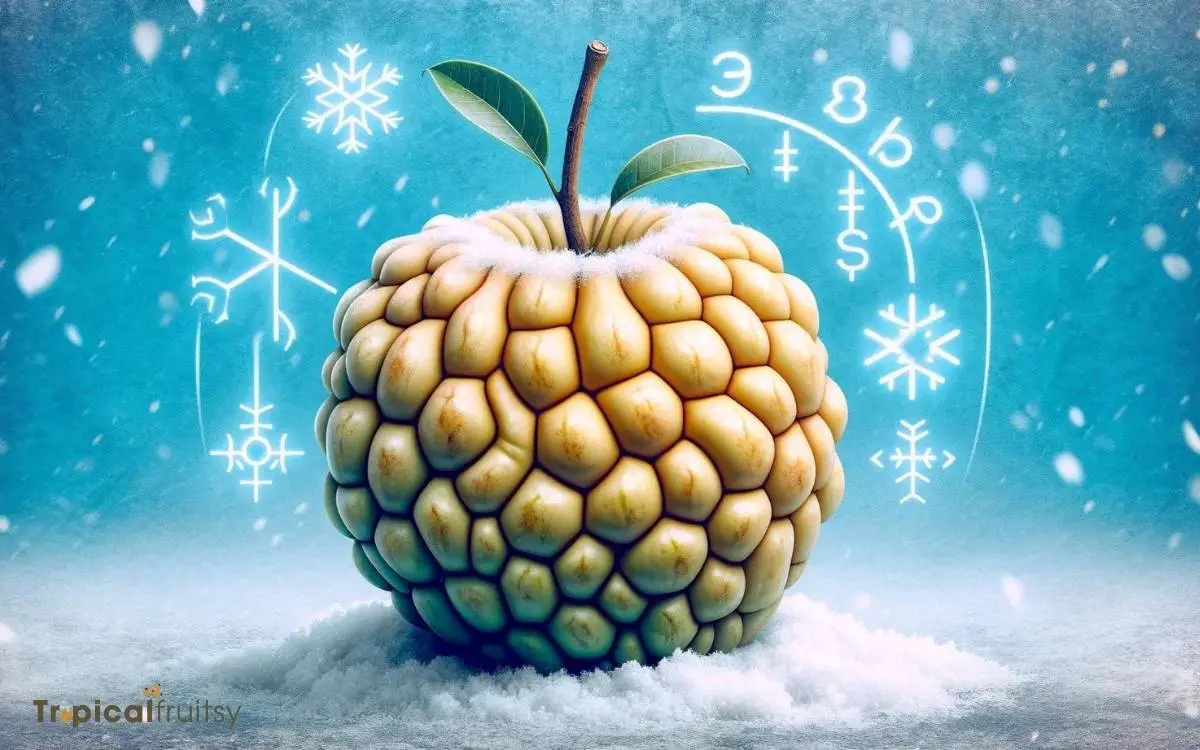
Key Takeaway
Understanding Custard Apples
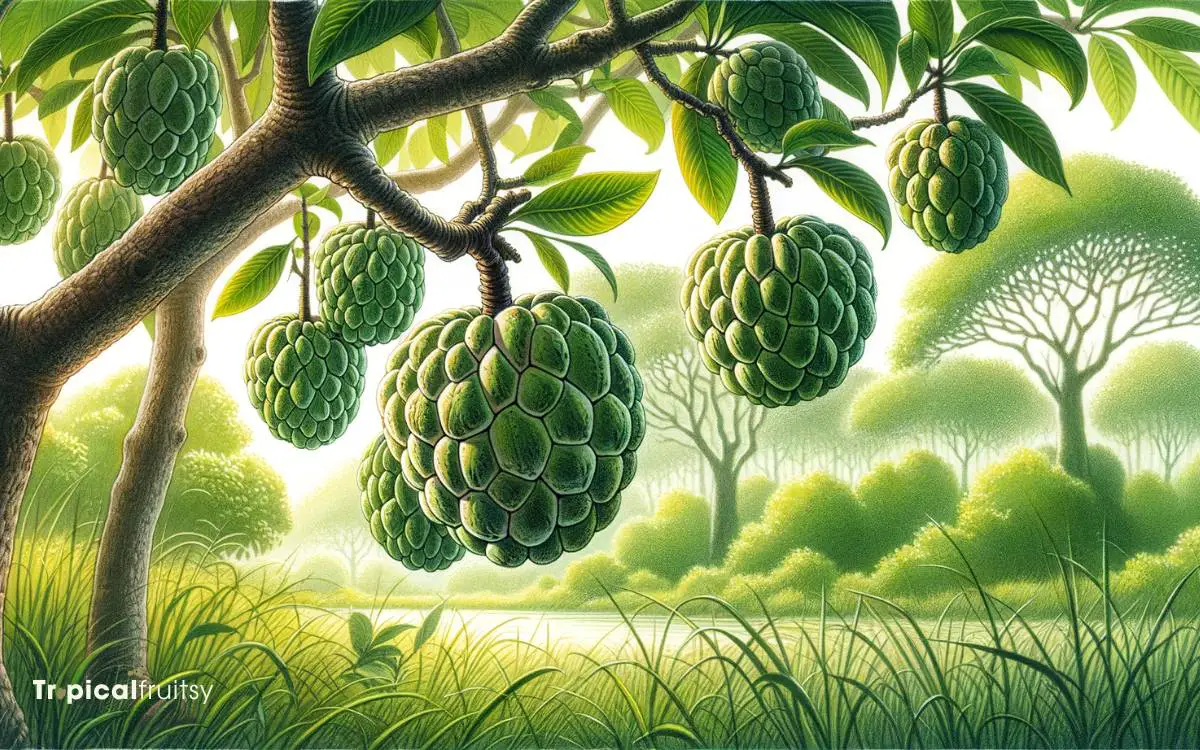
I’ll begin by clarifying that a custard apple is a tropical fruit known for its creamy texture and sweet taste.
Scientifically referred to as Annona squamosa, it’s part of the Annonaceae family, encompassing various species like soursop and cherimoya.
Custard apples thrive in warm climates and are rich in vitamins and minerals, making them not just delicious but nutritious as well.
Contrary to some beliefs, there’s no direct evidence linking the consumption of custard apples to causing colds. Colds are typically caused by viruses, and dietary factors don’t directly cause viral infections.
However, it’s essential to maintain a balanced diet to support a robust immune system, which can help ward off illnesses, including the common cold.
The Common Cold Explained

The common cold, a widespread respiratory infection, often manifests through symptoms like sneezing, coughing, and a runny nose. It’s caused by a variety of viruses, with rhinoviruses being the most common culprits.
I understand that these viruses are highly contagious and typically spread through droplets when someone with a cold coughs or sneezes.
It’s a myth that cold weather or eating certain foods like custard apples can cause a cold. The truth is, colds are more about viral exposure than environmental factors or diet.
Rest and hydration are key in managing symptoms, as there’s no cure for the cold itself. Over-the-counter medications can provide relief, but they’re not a solution.
I always emphasize the importance of good hygiene practices, like handwashing, to prevent the spread of cold viruses.
Nutritional Profile of Custard Apples
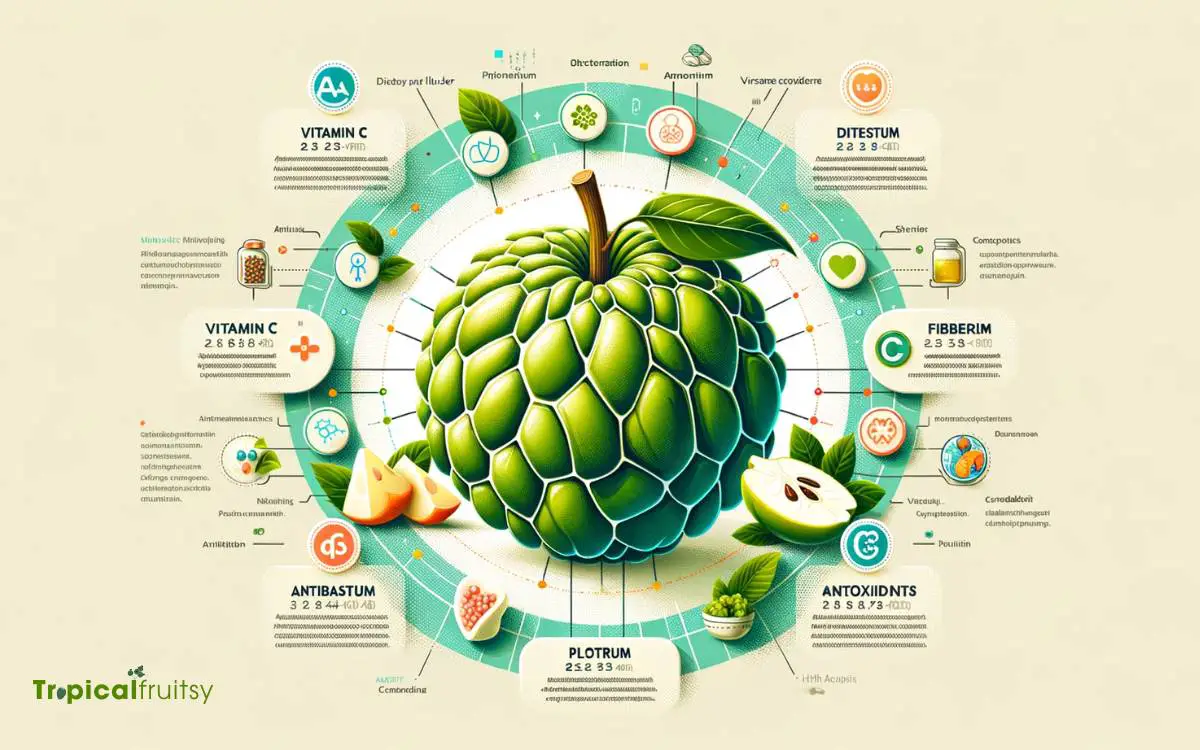
Despite the misconception linking them to colds, custard apples are in fact nutrient-dense fruits, rich in vitamins, minerals, and dietary fiber. They’re an excellent source of nourishment and can contribute to a well-balanced diet.
Here’s a breakdown of their nutritional components:
- Vitamins: Custard apples are especially high in vitamin C, which is essential for immune system function, skin health, and iron absorption. They also contain a good amount of vitamin A, which is vital for eye health.
- Minerals: These fruits offer minerals such as potassium, important for blood pressure control, and magnesium, which plays a key role in muscle function and energy production.
- Dietary Fiber: High in dietary fiber, custard apples support digestive health and can help maintain a healthy weight.
Understanding their nutritional value helps clarify that custard apples don’t cause colds; they’re actually beneficial for overall health.
Myth Versus Science
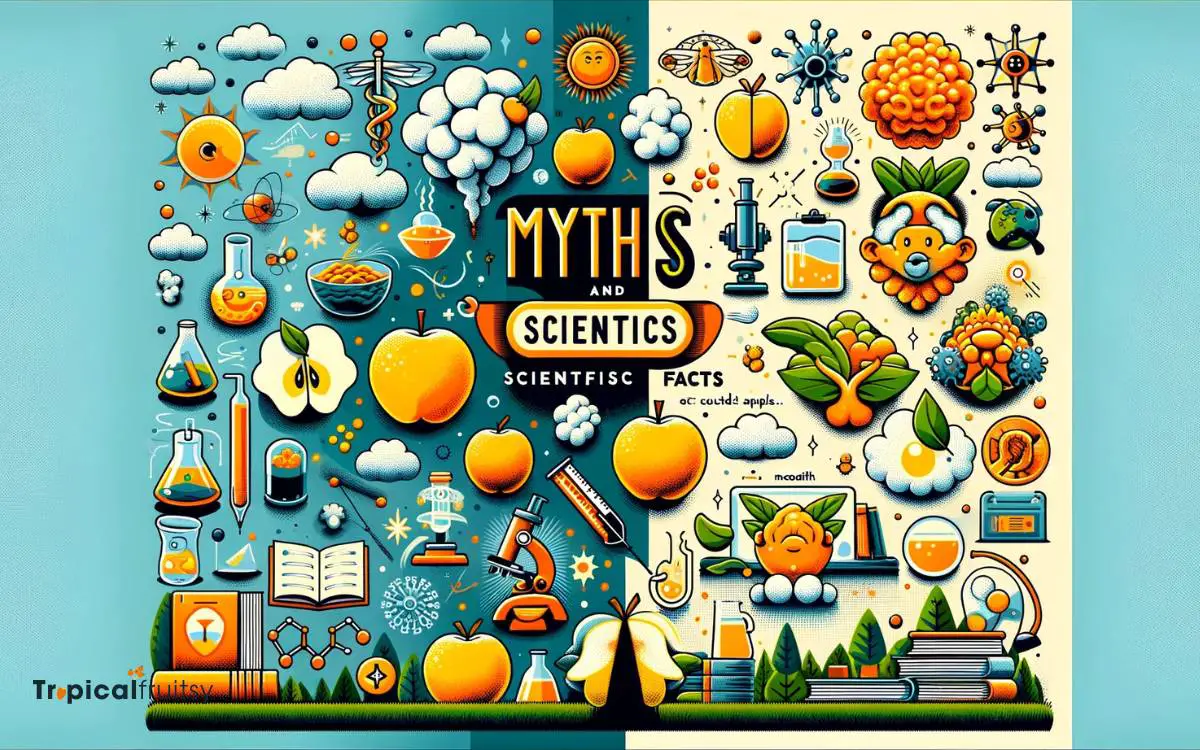
I’ve heard various claims about custard apples supposedly causing colds, but it’s crucial to separate fact from fiction.
Research doesn’t support the idea that any fruit, including custard apples, directly leads to respiratory illnesses.
I’ll examine the existing evidence to understand if there’s any truth to this belief or if it’s merely an unfounded myth.
Dietary Beliefs Examined
As a health enthusiast, I’m delving into the common belief that eating custard apples leads to colds, contrasting folklore with scientific evidence. It’s vital to scrutinize such claims to discern truth from myth.
Here’s what I’ve discovered:
- Nutritional Content: Custard apples are rich in vitamin C and antioxidants, which are known to bolster the immune system, not weaken it.
- Cold Causes: Scientifically, colds are caused by viruses, not by consuming any specific food, including custard apples.
- Temperature Misconception: Some believe that eating cold or cooling foods can induce a cold; however, there’s no evidence supporting this notion.
Cold Correlation Evidence
While exploring the dietary belief that custard apples cause colds, I’ve found no substantial evidence linking the consumption of this fruit to the onset of cold symptoms. The common cold is primarily caused by viruses, not by eating certain foods like custard apples.
Here’s a clear comparison between myth and scientific understanding:
| Aspect | Myth | Science |
|---|---|---|
| Cause of Common Cold | Eating custard apples | Viruses (e.g., rhinoviruses) |
| Evidence of Association | Anecdotal beliefs | Lack of empirical evidence |
| Consumption Impact | Believed to induce cold symptoms | No direct correlation found |
| Dietary Advice | Avoid during cold | No need to avoid unless allergic |
This table underscores the lack of scientific backing for the claim. It’s crucial to base dietary choices on reliable information rather than myths.
Is There Any Scientific Evidence That Custard Apples Cause Cold?
There is no scientific evidence to suggest that custard apples cause cold. In fact, custard apples are a rich source of vitamin C, which can actually help boost the immune system and prevent colds. In some cultures, custard apple dream symbolism represents fertility and abundance.
Safe Consumption Practices

I’ll now explore the safe consumption practices one should follow to enjoy custard apples without the worry of catching a cold.
When it comes to eating custard apples, here’s what you need to keep in mind:
- Wash Thoroughly: Always wash the fruits under running water to remove any surface contaminants that could potentially cause health issues.
- Consume Moderately: It’s crucial to enjoy custard apples in moderation. While they’re nutritious, overconsumption can lead to digestive issues, which might make you feel unwell.
- Proper Storage: Store custard apples in a cool, dry place. If they’re not ripe, let them ripen at room temperature. Once ripe, you can refrigerate them to extend their freshness.
Expert Opinions on Custard Apples

I’ve consulted various nutritionists and health experts to understand the impact of custard apples on our health.
They’ve clarified that the fruit’s rich nutritional profile, packed with vitamins and antioxidants, offers numerous health benefits.
However, the belief that it can induce a cold is largely a myth, with no scientific evidence to support it.
Nutritional Profile Benefits
Nutritionists assert that the consumption of custard apples provides a wealth of health benefits due to their impressive nutrient profile. I’ve learned that these tropical fruits aren’t just delicious but packed with essential vitamins and minerals.
Here’s what stands out to me the most:
- Vitamin C: A powerhouse for immunity, custard apples are rich in Vitamin C, which is crucial for warding off colds and infections.
- Dietary Fiber: They’re high in dietary fiber, promoting digestive health and helping in the prevention of constipation.
- Antioxidants: Custard apples contain antioxidants that fight free radicals, potentially reducing the risk of chronic diseases.
I find that incorporating custard apples into my diet benefits my overall well-being, supporting the views of experts who recognize the fruit’s nutritional value.
Cold Inducement Myth
I’m examining the common belief that custard apples induce colds, seeking insights from health experts to debunk or confirm this myth.
The idea that certain foods can cause colds is rooted more in folklore than in science. Colds are caused by viruses, not by the consumption of specific foods.
Nutritionists clarify that while some individuals may experience throat irritation from eating custard apples due to personal sensitivities, this isn’t indicative of the fruit causing respiratory infections.
Moreover, the high vitamin C content in custard apples is actually beneficial for the immune system.
Medical professionals emphasize that colds are a result of viral infections, and dietary factors alone are insufficient to trigger such illnesses.
Therefore, the notion that custard apples cause colds lacks scientific support and is a misconception.
Conclusion
In summary, there’s no scientific evidence linking custard apples to colds. Isn’t it reassuring to know that enjoying this nutrient-rich fruit won’t make you sniffle?
By debunking myths and following expert advice, we can savor custard apples without worry.
Remember, maintaining a balanced diet and proper hygiene practices are key to staying healthy. So, go ahead, relish that custard apple, and let science guide your dietary choices, not unfounded fears.




